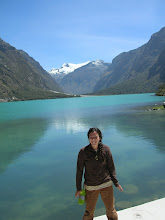
A great deal of my work here in Huashao has been focused on working with the school and students of Huashao and the surrounding areas. About 4 days per week I teach in the school, help work on our tree nursery, and coordinate with the teachers and evil school director. In addition to working in the school, for the past few months I

have been working with two different women’s groups in Huashao (Asociacion de Mujeres Tejedoras de Huashao) and the caserio of Incapacollkan , which mean granero de las Incas (grain storage? of the Incas). There are plenty of words these days that I cannot seem to find or translate into English anymore, and they are becoming more and more basic.

In Incapacollkan, I have worked been working with the Mujeres Lideres Conservadoras de Medio Ambiente de Incapacollkan (Women Leaders in Conservation of the Environment of Incapacollkan) since February. This group of 15 women is an amazing example of the strength, will and capacity of the women in Ancash.

I began working with this group of women after being invited by my neighbor Victoria to come to her house one afternoon to become acquainted with Incapacollkan. Victoria is a boisterous, outspoken, older Quechua woman that once

thought I was crazy…… First of all, the only place that I can make phone calls is from a rock on the side of the road. As Victoria was passing by one day to pasture her sheep, she saw the new gringa in town sitting on the side of the road, on a

rock, in the middle of nowhere laughing and talking to herself. In the midst of my conversation, I saw her staring at me, afraid to move or come any closer. As I turned around she finally saw that I had a phone in my hand, and with a huge sigh of relief explained that she thought I was some crazy gringo that ended up in her

community. After that strange and wonderful day, we have been great friends.
Anywho, one day as we rode up in a taxi together filled with 14 people (these are normal sized cars mind you), Victoria invited me to her home one Saturday afternoon. At this first exchange, Victoria was ready with a group of women from

the community that had wanted to talk to me about forming a women’s group. From their children and one of the teachers at the school, they had heard that I was the ‘environmentalist’ of the school, and were ready with a slew of questions and ideas to form a new group in the community. Since February, I have helped the women

organize themselves as an established group, keep record keeping, learn how to write formal documents etc, in order to strengthen their organizational capabilities. As the group name suggests, this women’s group is concerned mostly with local environmental issues. As a result, we work together to organize trash cleanups, separate trash, and practice informed natural resource management within the community. In the next rainy season, we are going to build a tree nursery to promote local reforestation within the community.

In addition to working with environmental themes, we also work with artisanry (a word?) as an income generating activity. Like many women in the community, this women’s group creates woolen goods to sell to tourists that pass through on their way to Laguna Llanganuco and Huascaran National Park. Unlike many

women however, this women’s group uses wool from their own sheep and takes part in every step of the process of creating their product. Aside from shearing the wool from their own sheep, we hand spin the wool into yarn. In addition to hand

spinning, we dye the wool with natural, local dyes instead of the commercially sold chemical dyes. By using the natural dyes, the women are using skills gained through their culture, and thereby promoting local knowledge of their natural resources (in addition to avoiding the consequences of using harsh chemicals). The wool is dyed using herbs, vegetables, barks, ashes, berries and shrubs. Once a month, we meet to dye the wool, which results in a day of jokes, mini Quechua lessons and the

explanation as to why I am not married by now. Older Quechua women are probably the funniest, boldest people (after you have gained confianza of course) you will ever meet in any Sierra community in the Andes, and I always look forward to spending a day with the ladies during the week.
With these women, this first year is the time in which we begin to establish environmental action within the community to promote awareness, but to also establish a product that these women can sell to improve their economic situation. Hopefully as things become more and more established, next year (or few months) can

be more focused on large scale environmental projects and also marketing of their artisanry to tourists. At the moment, we are trying to coordinate with different NGO’s and their local municipality to receive weaving and spinning machines for the group. Hand spinning, weaving and knitting are all very beautiful things, but it is very impractical if you are trying to create a product base to market and sell. If

we cannot receive the machines, we are going to try to build them with plans from an NGO based out of Lima. The women from the group are saving up money to have a fund for the group, and on multiple occasions we have organized polladas to sell meals to raise money. Polladas are like bake sales, but involve slow roasted chicken that has been cooked in a variety of herbs, spices, beer and soda surprisingly. I love brownies and cookies, but polladas could definitely win in a fight.



No hay comentarios:
Publicar un comentario